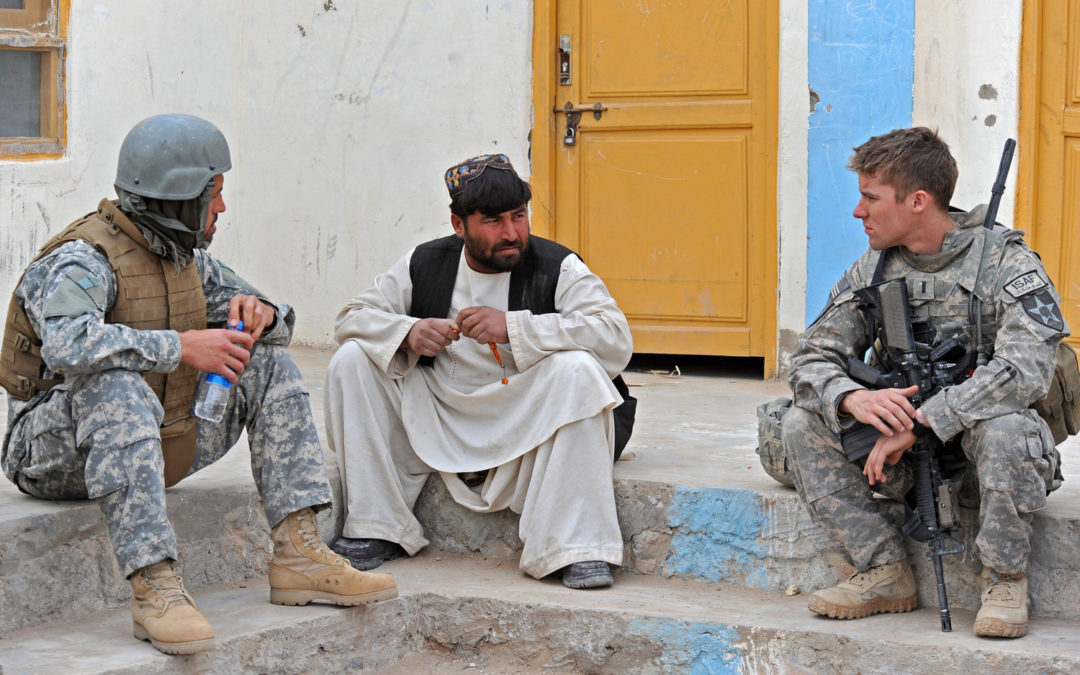US troops in the Middle East often recruit local interpreters to support their military operations. These war interpreters have proven to be critical to the success of US military operations. They help establish a rapport with the local population and they help gather crucial intelligence. In doing so, the interpreters put themselves and their families in grave danger as they are often seen as traitors by their co-nationals. As the US military recedes, some interpreters are rewarded with US citizenship, but the visa application process can take months or even years, putting the lives of many interpreters at risk.
Last week, Afghan interpreter Ziaulhaq Ghafoori made headlines when he became a US citizen after serving as an interpreter on the front lines for 14 years. Ghafoori’s road to citizenship was long and hard, but he managed to get himself and his family to safety. “I decided to take my family and get out of there because our life was in danger in Afghanistan, especially for those allies that worked with the U.S. Army,” Ghafoori said. Ghafoori’s citizenship may be a success story, but there are still countless interpreters struggling to obtain their US visa.
Interpreters can apply for a Special Immigrant Visa (SIV) if they have served the US military for a minimum period of 24 months. Beyond that, the interpreters also have to be recommended by US service members and they have to pass extensive background checks. It already is a long and arduous process, but now, interpreters may have less time than ever. With the escalation of the Taliban’s threats, Trump is calling for a US withdrawal from Afghanistan. US troops suddenly withdrawing from the region may leave many interpreters to fend for themselves.
Unfortunately, the long visa application process for interpreters in conflict zones is not an unknown issue. Back in 2014, in the HBO show Last Week Tonight, John Oliver already addressed the topic, but not much has changed since then. A few organizations advocate for the needs of foreign interpreters. No One Left Behind was founded in 2013 to help war interpreters with their move to the US and the Interpreting Freedom Foundation provides much needed support during the visa application process.


Do you mind if I quote a couple of your articles as long asI provide credit and sources back to your website?My blog site is in the very same niche as yours and my users would certainly benefit from some of the information you present here.Please let me know if this okay with you. Thanks!